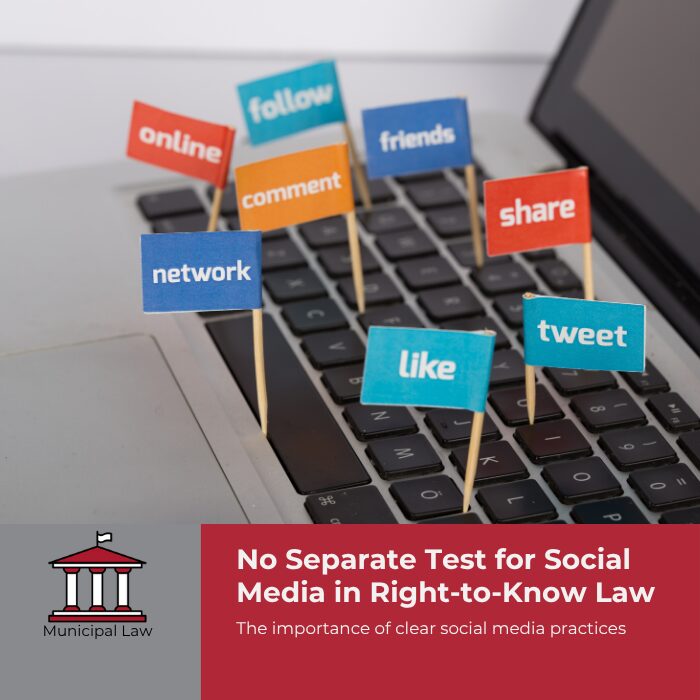When Personal Facebook Posts Become Public Records
Written by Katelin Carter, Law Student Intern

On August 19, 2025, the Pennsylvania Supreme Court addressed whether school board members’ posts on their personal Facebook accounts could qualify as “records” subject to disclosure under the Right-to-Know Law (RTKL). The case arose after a high school library’s Pride Month display was photographed and shared online. Two school board members shared that post from their personal accounts, with one adding commentary that he planned to raise the “issue” at the next board meeting.
A local resident requested the posts under the RTKL, and litigation followed. Although made outside official channels, the comment directly invoked board business, raising the question of whether such posts can be shielded as “personal.” The Court ultimately held that while the RTKL applies equally to emails, photos, and Facebook posts, determining whether a personal social-media post is “of the agency” requires careful, fact-specific analysis and the case was remanded.
The ruling confirms that there is no separate, social-media-specific test. Instead, courts must continue to apply the RTKL’s existing two-part definition of a record: (1) the information must document a transaction or activity of an agency, and (2) it must be created, received, or retained pursuant to law or in connection with an agency’s business or activity. What changes is the recognition that when applying this test, courts can consider context, such as whether the post looked and functioned like an official communication, whether the content addressed agency business, and whether the official was acting in an official capacity.
For municipalities, this case highlights the importance of clear social media practices. Officials should be encouraged to use official accounts for agency business and to reserve personal accounts for private expression. Personal pages should avoid “official trappings” like seals or agency logos that blur the line between personal and public. When RTKL requests target social-media activity, agencies should evaluate whether the content actually documents agency business, build a factual record of that determination, and apply statutory exemptions as appropriate. Even posts on personal accounts can be disclosable if they further agency functions or reflect matters squarely within the board’s or council’s authority.
Penncrest Sch. Dist. v. Cagle, No. 31 WAP 2023, 2025 WL 2400297 (Pa. Aug. 19, 2025)

